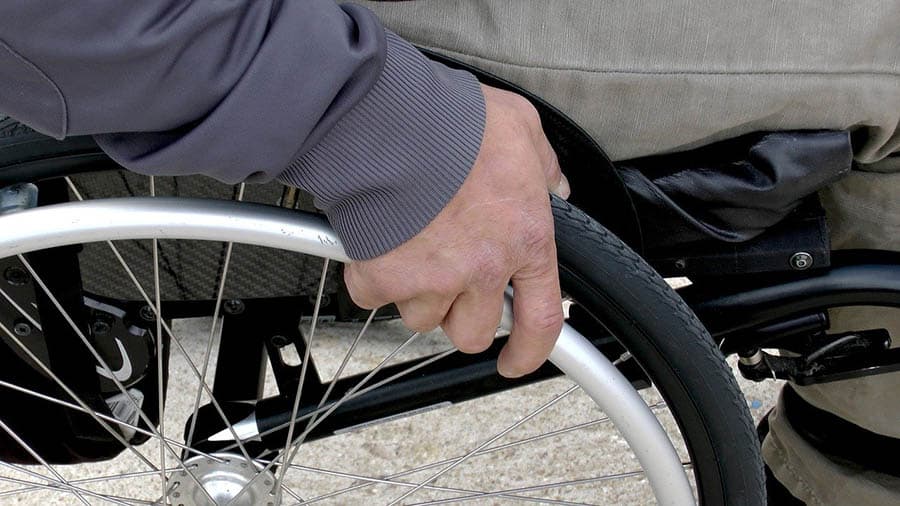Comment: How the disabled community has been disproportionately affected by the pandemic

As the UK marks the one-year anniversary of lockdown, the country reflects on the effects of coronavirus on the disabled community, and how those with disabilities have been disproportionately affected throughout the pandemic.
Looking into the events of the past year, Kaleidoscope Group, a platform working to empower disability through business, discusses the heartbreaking results of the pandemic, and how the direct effects on those with disabilities could have been prevented.
Those with learning disabilities were the most affected
The Office of National Statistics (ONS) collated data on people with a medically diagnosed learning disability and found that the risk of death involving COVID-19 was 3.7 times greater for both men and women compared with people who did not have a learning disability.
Following further analysis after using statistical models to adjust for a range of factors, a raised risk of 1.7 times remained unexplained for both men and women.
In addition, socio-economic and geographical circumstances – including pre-existing health conditions – made some difference to the risk for people with learning disabilities, but the largest effect was associated with living in a care home or other communal establishment.
Research reveals that female disabled people at most risk
New ONS figures suggest that disabled women are more affected by the pandemic than disabled men, with data showing that between 24 January and 20 November 2020 in England, the risk of death involving the coronavirus among women was 3.5 times greater for more-disabled women and 2.0 times greater for less-disabled women, compared with non-disabled women.
Among men, the risk of death was 3.1 times greater for more-disabled men and 1.9 times greater for less-disabled men, compared with non-disabled men, showing a behavioural and social gender bias within UK communities.
After adjusting the statistical models for personal and household characteristics, including residence type, and socio-economic factors, a smaller but statistically significant raised risk of death remained unexplained for more-disabled (1.4 times) and less-disabled women (1.2 times) and more-disabled men (1.1 times) but not for less-disabled men.
This means that no single factor explains the considerably raised risk of death involving COVID-19 among disabled people. Although social factors do play a part, the main part of the raised risk is because disabled people are increasingly exposed to a range of unfavourable circumstances compared with non-disabled people.
The need for greater care and investment
Michael Green, Head of Marketing at Kaleidoscope Group says: “It is my belief that the community and disabled community should be embraced and nurtured with greater care and investment. It is for the Government and Minsters to embrace our communities effectively and empathetically.
“COVID 19 has impacted every family, country and community in the world, with our economies being impacted in an unprecedented way. However, through the wonders of communication the disabled community represent a team of people who can benefit our communities and businesses around the world through their personal understanding and talents that really understand and nurture care and potential, with added value in our world.
“The size of the issue from our perspective is that 22 per cent plus of the global population has been impacted more significantly than other parts of the world and this should drive significant level of investment and accessible improvements going forward.”
Professor Zenobia Nadirshaw M.B.E. and member of the Kaleidoscope Group Board explains: “We really want to discourage triple discrimination of society and embrace society and all people in employment and appreciation of competencies and talents.
“It is our aim to educate corporations of opportunity and eradicate bias against women, black and all colours and ethnic groups. We wish to empower all talents for our one challenged world, embracing health and wellbeing for everyone and promoting unconscious bias.”


